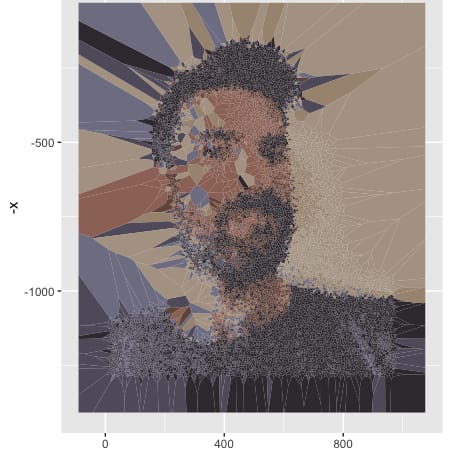
There are many wonderful books on/of data visualization, and if you work in data, you probably have a few (hopefully more than just that one), and you should probably get some more.
As your collection grows, consider that the next great book to inspire you, to help you comprehend the craft, to further you on your journey to master that craft, may not be a treatise on chart types or data storytelling, but something possible even cooler: A Comic About Comics.
These are just the ones I own. You really can't go wrong with any of these. And even if you have no interest in data viz, this comics about comics genre is still fantastic mind-expanded set of books.
I discovered Scott McCloud's work in 2018, when he was interviewed for an episode of the design podcast 99% Invisible.
That conversation -- but especially his 1993 classic Understanding Comics which I read right afterwards -- really blew my mind. There have been less than a handful of times in my career where I felt that lightbulb above my head go on with anywhere near the wattage of when I digested Understanding Comics.
I walked away from Understanding Comics with this incredible insight that data visualization was really a form of comics ("sequential art" if you're worried the person you're talking too thinks "comics" is a dirty word). Charts -- and especially sequences of them to make things like dashboards or powerpoint presentations -- very definitely count per McCloud's definition:
Juxtaposed pictorial and other images in deliberate sequence, intended to convey information and/or to produce an aesthetic response in the viewer.
I had been working in data jobs and making charts to understand and communicate things both professionally and recreationally for many years. And I had some successes: charts that helped my colleagues make decisions, charts that made cool nerds on tumblr chuckle, even a few that I didn't think were hideous. I didn't yet have a full bookshelf of data viz books, but I had more than one (the first I bought was indeed that one). Somehow even more so than the grammar of graphics: to me personally this idea of charts are comics has been the most powerful aha moment in my "career" as a chartmaker.
If you've read Understanding Comics and gotten something out of it, I'd also encourage you to keep going with McCloud's work. Although 1996's Making Comics did not quite inspire me to start making comics, it has great lessons about composition and visual storytelling. 2000's Reinventing Comics in particular had a lot of resonance for me, as someone who's sequential art (charts) is both made and consumed through screens and computers.
Scott McCloud released another comic about comics just this week: The Cartoonists Club with Raina Telgemeier. Aimed at younger readers, it takes the most important ideas from Understanding... and Making... and embeds them into a narrative I don't think Understanding Comics ever brought me to tears, but I needed a kleenex after I finished The Cartoonists Club.
It is reductive to call this a comic about comics: it's definitely a comic, but it's about something a little bigger than, and a lot more cerebral than McCloud's work. It's hard to pin down exactly what to call that (the shapeliness of ideas?). That written words are insufficient to describe this complexity of the topic is another thing the book is kind of about.
It is also compositional feast: pages flow in all sorts of directions. Every spread maps complex and abstract things to two-dimensional page.
RJ Andrews deserves a shout-out. He is the one who recommended Unflattening to me (at the Tapestry Conference). If you don't have a data viz bookshelf yet, I can safely say Andrews's newly remastered Info We Trust is a perfect place to start (a way better than that one). RJ also has a wonderful write-up on this very topic: "Books with data for the data professional" that includes both Unflattening and Understanding Comics.